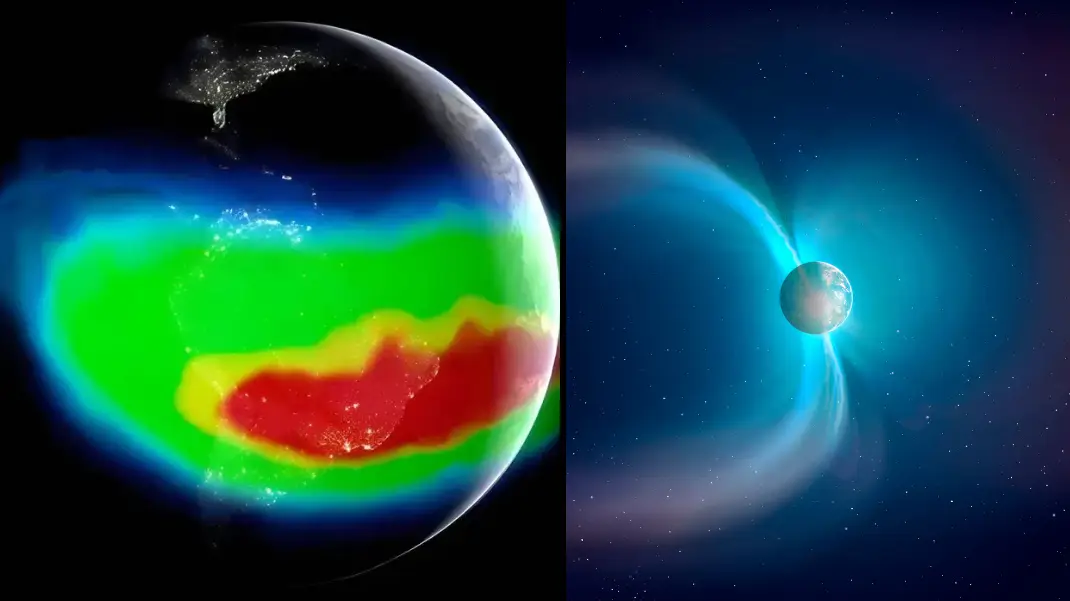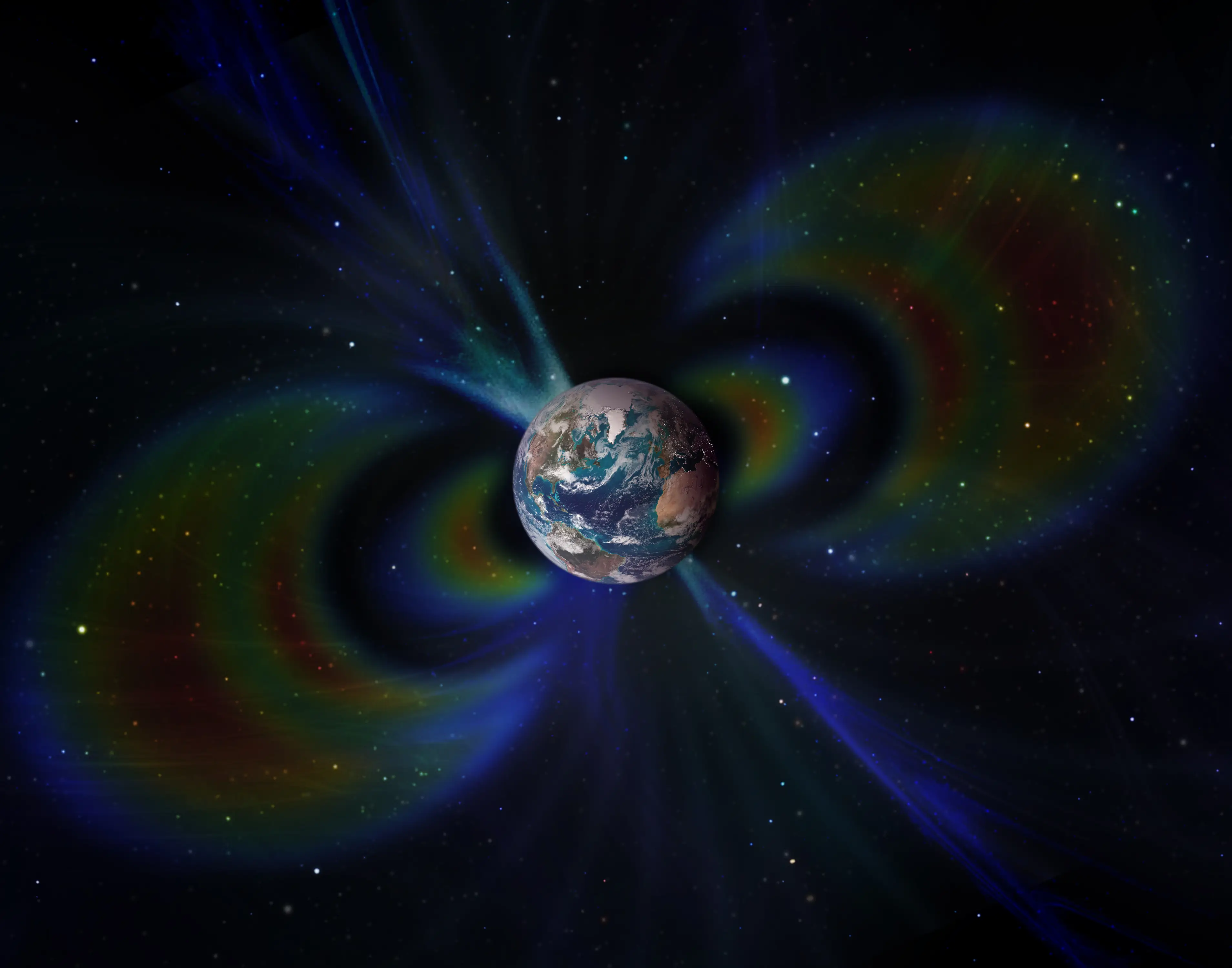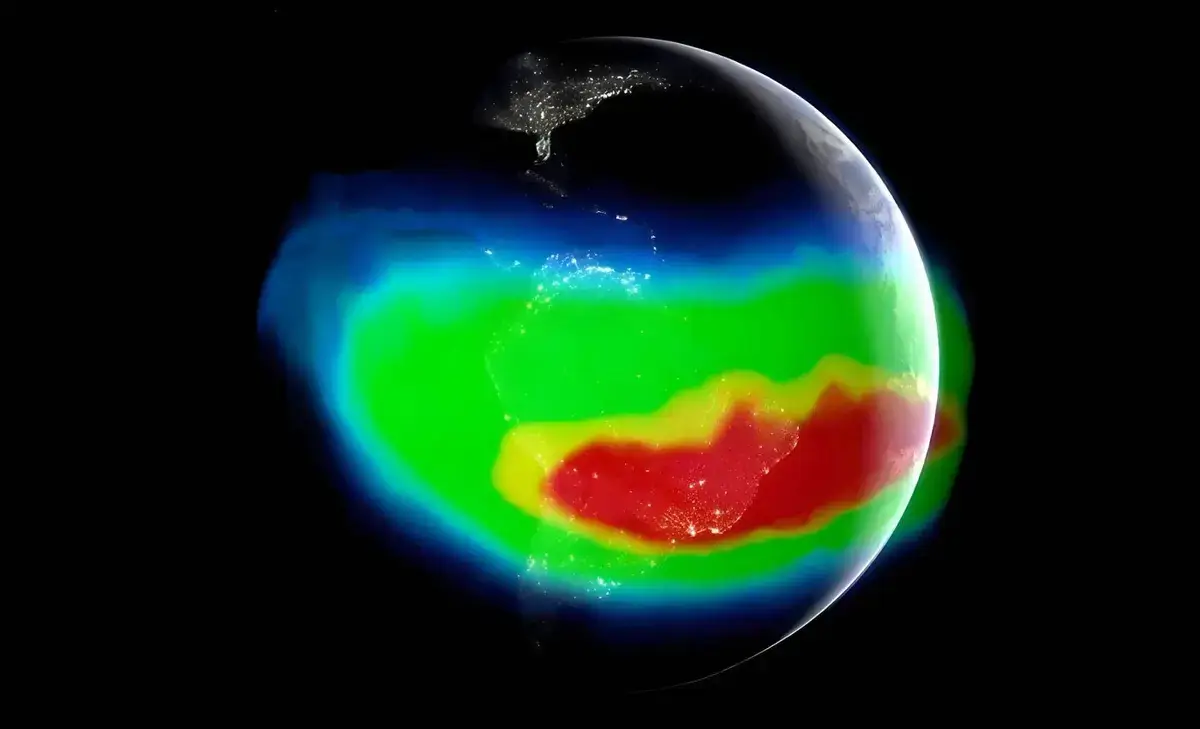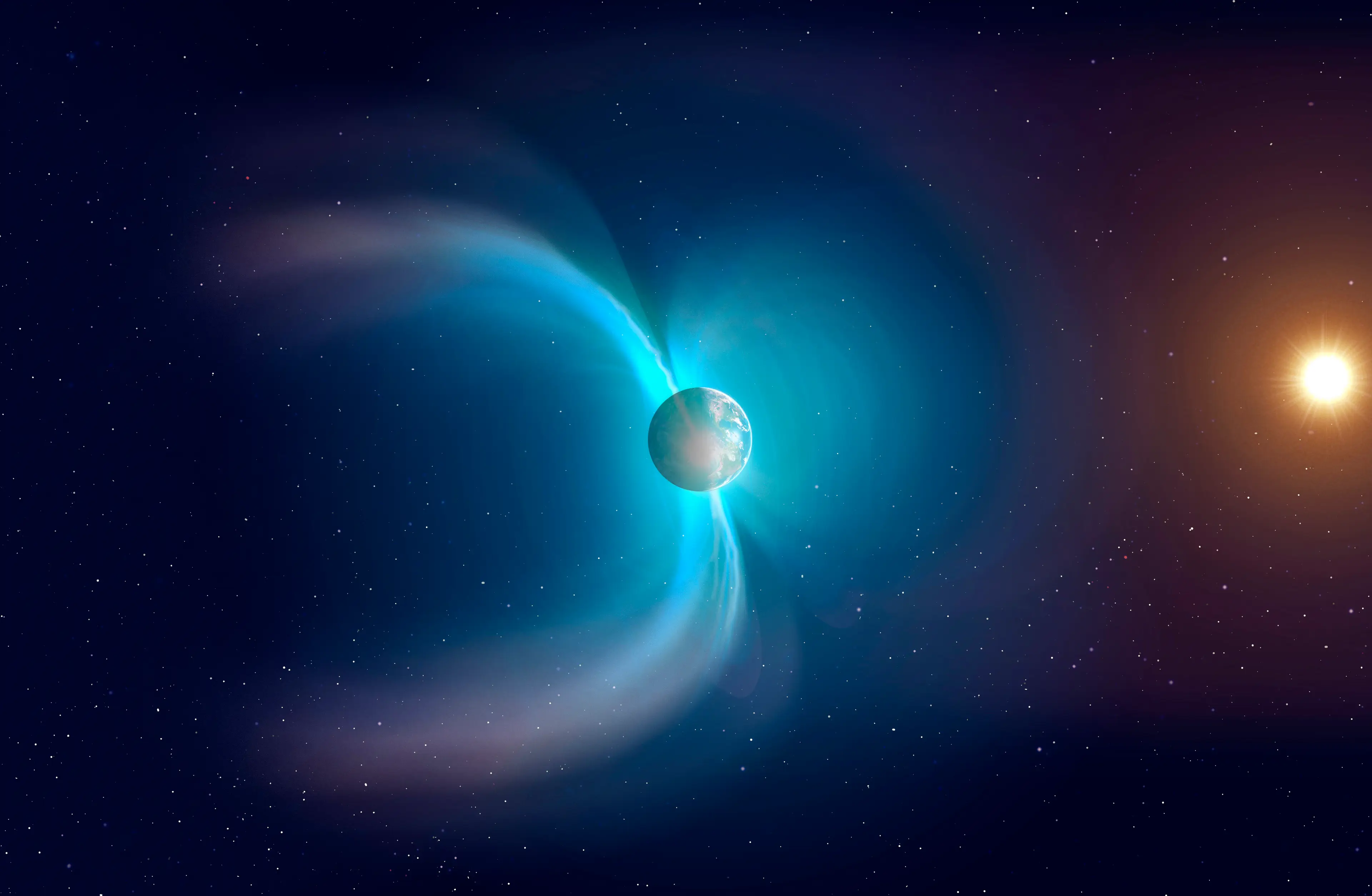
NASA scientists are closely monitoring a spot in Earth's magnetic field that could cause serious issues for humanity as we know it.
A region of the planet that leaves humanity vulnerable, it is actually known officially as the South Atlantic Anomaly, or SAA.
Quite literally a 'dent' in the planet's magnetic field, it is bloomin' huge, going from southwest Africa right over to South America.
American space agency NASA has been closely watching the potential magnetic issue, and what it could mean for humanity if things go wrong.
Advert

South Atlantic Anomaly and Earth's magnetic field
The SAA was first discovered back in 1958 and to this day is still watched closely by experts at NASA.
In recent years, NASA has revealed it can cause 'big headaches for satellites'. And in turn, us mere mortals down on the Earth's surface.
OK, so a small science lesson. The magnetic field is essentially a protective bubble around the planet itself.
It is this bubble that stops the Sun from vaporising life, allowing biological things to flourish by repelling and trapping charged particles from the star.
Unfortunately, there is an issue with this over South America and the southern Atlantic Ocean in the SAA. Here, these particles dip closer to the surface than normal.

Issues for humanity
Due to the SAA's existence, more of the damaging stuff thrown out into space by the Sun gets to a level that harms us.
Particle radiation in the SAA can knock out computers and can even interfere with the data collection of satellites that pass through it while orbiting the planet.
It is this vital reason why NASA scientists want to track and study the anomaly. Another is to track how the atmosphere around the planet may or may not be changing, with alterations to the SAA an indicator of something being afoot.

A changing problem for scientists
Currently, the SAA creates no visible impacts on daily life on the surface. However, 2020 observations and forecasts show that the region is expanding westward and continuing to weaken in intensity.
The SAA is also splitting. Data shows the anomaly’s 'pothole' has split into two lobes, creating additional challenges for satellite missions.
And with humanity looking to explore space once again, with expeditions to Mars and further afield spoken about by the likes of NASA and Elon Musk's SpaceX, the impact of the SAA on space tech is very real.
The more we're exposed to a weakened magnetic field, the more it attacks us. Whether that be biological or mechanical, it will damage us in ways that could see spacecraft malfunction while in the cosmic void.
With them being something called high-energy proton strikes, they could cause significant data loss or irreparable damage. It is due to this that satellite operators will totally shut down their spacecrafts while entering the SAA. To not do this could be devastating for life back on Earth, especially with satellites that are essential to how we live our lives whether that be GPS, keeping hospitals going, food production, or weather patterns.
"Even though the SAA is slow-moving, it is going through some change in morphology, so it’s also important that we keep observing it by having continued missions," said Terry Sabaka, a geophysicist at NASA’s Goddard Space Flight Center in Greenbelt, Maryland.
"Because that’s what helps us make models and predictions."
Topics: Science, NASA, Space, World News